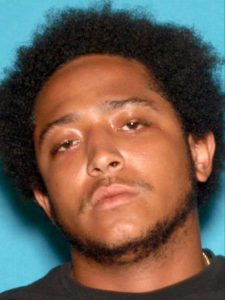The importance of addressing hearing damage.
By Staff Writer
People from all around the world travel to Los Angeles, in part, to dine at some of its world-class restaurants. And while nobody is complaining about the vibrant food scene, the hustle and bustle of a busy restaurant comes with a downside: noise.
According to Dr. Melissa Alexander, an audiologist based in Santa Monica, restaurants in L.A. regularly are loud enough to cause hearing damage.
“I am seeing patients in their 30s because the reality is we have so much noise exposure in an industrial society like Los Angeles. You go into a restaurant in L.A., and it is registering at 106 decibels,” Dr. Alexander said. “You can sustain that for just an hour or so without causing damage.”
For comparison, 106 decibels (dB) is louder than a lawnmower (100 dB) or a jet engine of a plane (105 dB), and this level of sound is not just present in restaurants; it’s everywhere. Whether it’s the roaring of traffic or the cheers at a sporting event, daily life in cities exposes residents to noise that can over time cause hearing loss and create the need for aids like an Eargo.
Dr. Alexander, whose practice Alexander Audiology sees patients from lawyers, doctors, professors, judges, actors and musicians, says that because of the reality of noise pollution, hearing aids are something that people of all ages and walks of life should consider.
“People think of it as basically a luxury. It is not a luxury. There is a lot of definitive research out there that talks about some of the real ramifications of not wearing hearing aids and not protecting your hearing when you are young,” Dr. Alexander said. “There is a definitive link with untreated hearing loss and dementia.”
According to Dr. Alexander, a patient with just mild hearing loss has twice the risk of dementia, a patient with a moderate loss has three times the risk, and a patient with a severe degree of hearing loss has five times the risk of dementia.

“In a patient with untreated hearing loss, there is an area of the cortex, the part of the brain that is responsible for speech processing, that is not getting stimulation, and when that happens, we know that more plaques and tangles associated with dementia start to creep into that area of the brain,” Dr. Alexander said.
For individuals who have hearing loss but do not wear hearing aids, the lack of stimulation to neurons responsible for hearing can have irreversible effects.
“For some patients who don’t wear hearing aids, over time, because the brain is not ultimately getting stimulated, the neurons in the brain will actually prune off, and atrophy. And due to this atrophy, words even when you make them louder through a hearing aid, don’t sound clearer.”
Luckily, the types of hearing aids available for patients at Alexander Audiology can be both discrete and invisible, going beyond the typical notions of hearing aids.
“We have hearing aids that are totally implantable. We place them 4 millimeters from the eardrum. You can’t see them at all. You can sleep with them, you can shower with them,” Dr. Alexander said. “We also make custom, digital hearing aids which are tiny, smaller than a jelly bean. They fit down inside the ear. They are custom made to that patient’s ear, have a lot of background noise control and even Bluetooth streaming. The days of having big hearing aids that are visible is not a reality anymore.”
At Alexander Audiology, this world-class level of audiology practiced is matched with world-class patient care.
“We provide the highest level of concierge audiology in L.A. We go to patients’ homes, do house calls, weekend appointments. We travel, we take care of patients like family. When a patient calls and has a question or need, they know they can reach us no matter the time of day,” Dr. Alexander said.
For more information about Alexander Audiology, visit alexanderaudiology.com, call (424) 738-3778, follow on Facebook and Instagram @alexanderaudiology or find them on Yelp.

























